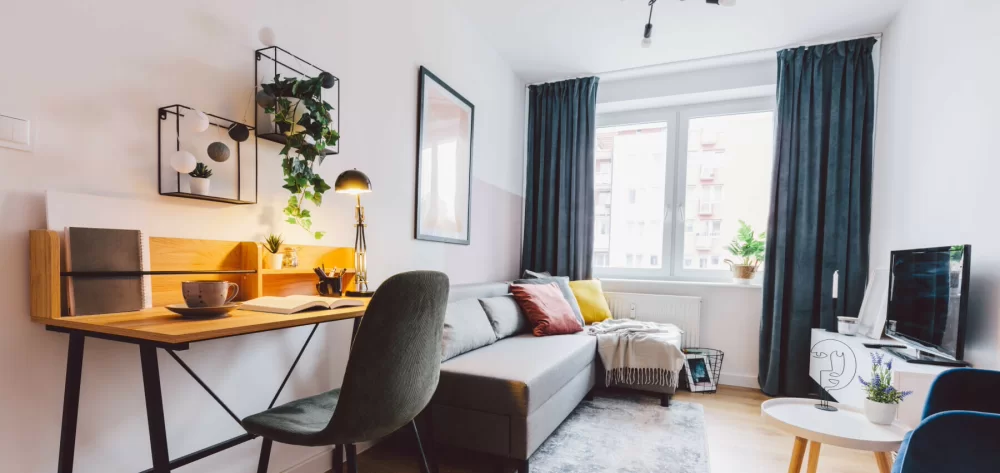Switzerland is a country of renters, with 57.7 percent of residents renting their homes. Find out what you should pay attention to when moving to Switzerland and renting a home in this moneyland.ch guide.
Rents in Switzerland
Because the housing supply hardly keeps up with the high demand, rents in Switzerland have been going up for many years now. In cities and suburban areas, in particular, competition for housing is relatively fierce. In rural areas, on the other hand, it is still possible to find affordable housing. The moneyland.ch guide to getting cheaper housing in Switzerland offers useful tips for cutting down your rental costs.
Swiss platforms to find housing
Established Swiss online platforms that help you find homes for rent include immoscout24.ch, homegate.ch, comparis.ch, and newhome.ch.
Lease applications
Once you find a property you are interested in, you will normally have to fill out an application form. Some landlords give you the option of doing this online as well. These forms typically include questions about your employer and your monthly income. You will normally be required to submit a debt collection register statement along with the completed form. The guide to boosting your chances of being approved for a rental home provides useful tips for the application process.
Security deposits for rental homes
In Switzerland, landlords may require you to put down a security deposit equal to as many as three monthly rents. You deposit the money in a special security deposit account at a Swiss bank, where the money is blocked until the rental agreement ends. You can find a comparison of accounts from major Swiss banks in the guide to security deposit accounts for rented homes. Normally, the landlord decides which bank to use, but you can make a recommendation.
Security deposit insurance is an alternative to paying down a deposit. In reality, this is not insurance at all, but a guarantee for your landlord. The security deposit insurance provider guarantees your landlord payment of damages and unpaid rent, up to the same amount that would be covered by a conventional deposit. The insurance company pays your landlord the amount you owe, and then makes you reimburse its expense. Because you have to pay an annual insurance premium for this cover, it is generally cheaper to use a security deposit account instead. Security deposit insurance is worth considering if you cannot afford to put down the deposit. You can find the cheapest offer using the security deposit insurance comparison on moneyland.ch.
Debt collection register statement
Much like the credit statements you get from credit bureaus in some countries, a statement from a Swiss debt collection office shows your prospective landlord that you are creditworthy and financially reliable. You normally have to submit copies of a recent statement from your regional debt collection office along with applications for rental homes. The statement lists any debt collection claims made against you. In order to get a debt collection register statement, you have to already be a legal resident of Switzerland. If you are just moving to Switzerland, then a credit statement from your last country of residence may be accepted in place of a Swiss debt collection statement.
Supplementary rental costs
In Switzerland, a difference is made between gross rent and net rent. The gross rent includes supplementary rental costs. The actual costs you end up having to pay can be higher or lower than the prepaid amount.
In Switzerland, supplementary rental costs always include heating, hot water, and facility management, but may include other costs as well. There are two commonly-used billing methods for supplemental costs:
- Prepaid: You make a series of prepayments in advance. At the end of a billing period, the effective costs are measured up against your total prepayments. If the total amount you paid in over the term is higher than the actual costs, then you get money back. If the total prepaid amount is lower than the effective costs, then you have to pay the difference on top.
- Fixed payment: You pay a fixed amount that covers all supplementary rental costs.
All supplementary rental costs that are not explicitly mentioned in the rental agreement are covered by the rent. Electricity is not normally included in the supplementary rental costs, but is billed directly to you by the power company. In Switzerland you cannot choose between multiple electricity providers. Your home is automatically connected to the local power company that covers your area.
Furniture
Swiss rental homes typically come with a built-in kitchen. Rental homes normally come with access to a communal laundry room. Newer homes now often include a pre-installed washing machine and drier.
When you move out of a rented home in Switzerland, you must perform a deep cleaning of the property before handing it over. That is a requirement that you do not have in many other countries, where a basic cleaning is sufficient. You can learn more about the final cleaning further on in this guide.
Rental property inspection checklist
The rental property inspection checklist is a form on which you document all existing damages, problems, and wear before you move in. This protocol play will play an important role when you eventually move out, as it shows you and the landlord which damages you are not responsible for. Only sign the inspection checklist if you are in agreement with it. The renters’ association provides a list of the damages (in German) which you as a renter can be held accountable for.
Maintenance and cleaning
In Switzerland, the maintenance and cleaning of shared areas is generally managed by the landlord. However, the cost of these janitorial services is normally billed to you as part of the supplementary rental costs.
Terminating your rental agreement
The dates on which you can end the rental, and the required notice periods, are normally laid out in the rental agreement. Most landlords require you to give notice at least three months before you move out. Make sure that your landlord or property manager actually receives your notice at least one day before the notice period begins. If the contract does not specify a notice period, nor the dates on which you can end the lease, then the notice period that is widely used in your region will apply. If you are not sure what that is, you can get this information from the relevant arbitration authority.
If you want to move out before the nearest moving date stipulated in your rental agreement but do not want to keep paying rent until the contract term expires, then you have to find a suitable renter to take over your lease. That person has to accept the terms and conditions of the rental agreement. Your landlord has 30 days to check into whether the prospective new renter meets the required criteria.
Final cleaning before moving out
Leaving the property in a generally neat condition is not sufficient in Switzerland. In most cases, landlords require you to perform a thorough cleaning. You can do this yourself, or you can make use of specialized home cleaning services. Dirt, grease, and calc have to be removed, and the floor must be washed.
Performing the required cleaning yourself can be difficult and time-consuming. Hiring professional cleaners lets you avoid doing the work yourself, but can be expensive. Depending on the size of your home, you can easily pay 1000 francs or more for professional cleaning. If you decide to use a cleaning company, make sure that the contract with the cleaners guarantees that the house will be cleaned to the required standard. With this guarantee, the cleaning company accepts responsibility for all cleaning that may be required until your landlord is satisfied with the results.
Moving out
Unless you have a special agreement, you can stay in your rented home up until the last day of your rental contract’s term, at the latest. In the cantons of Glarus, Grisons, Schaffhausen, Schwyz, Zug, and Zurich, you can turn over the property on the day after the lease ends. If the last day of the contract term is a Sunday or a holiday, then you have to turn over the property on the next work day. Ideally, you should arrange a time and date for handing over the property with your landlord early on.
More on this topic:
Tips for moving homes in Switzerland
How to get cheaper housing in Switzerland
Security deposits for rental homes: Bank account or insurance?
Damages to rented homes – who pays for what?




